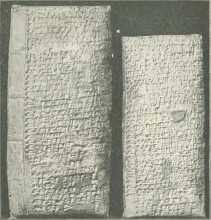This particular tablet displays some interesting takes on people’s views of politics, sex and philosophy in the age of Babylon. In the ancient age, those who knew how to read and write were almost exclusively those involved in important religious matters and a few select others. For this reason, writings of a purely entertaining nature were not a priority, especially when filling a tablet with characters often took a very long time. The tablet shows the use of puns, symbolism and metaphor in order to relate ideas.
These examples of creative, secular literature are important for historians in the modern age to get a full picture of what life may have been like 3500 years ago. History is usually written by the victors, and often a very small, elite group of the victors, so the truths behind life are buried in religious ritual and propaganda. Now we are one step closer to knowing what the ancient people of Mesopotamia thought about such universally important subjects as sex and beer.
